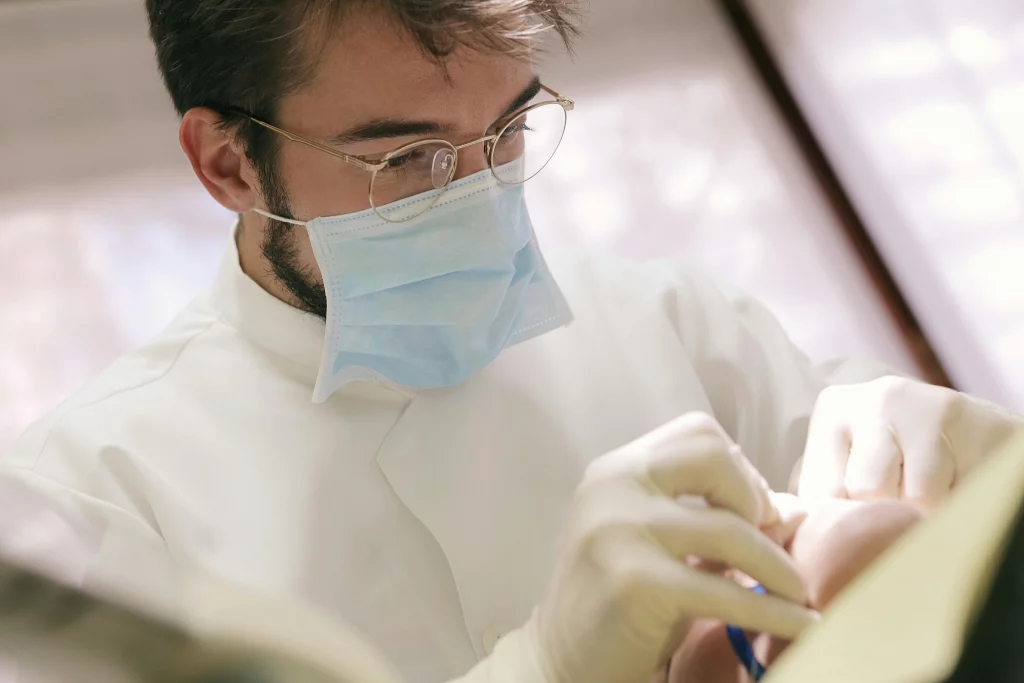In 2025, worldwide professional dentists are warning about vaping and its increasing concern regarding the oral health consequences of it. While e-cigarettes were once promoted as a less harmful alternative to traditional tobacco products, emerging research and clinical reports now indicate that vaping poses significant risks to oral health. Current studies demonstrate that the chemicals and additives present in many vaping liquids can precipitate gum inflammation, exacerbate dry mouth, and elevate the risk of dental caries and periodontal disease.
Dental practitioners are encountering a growing number of patients sometimes notably young presenting with oral health issues directly associated with vaping. This article examines recent scientific findings, provides expert commentary, and discusses the implications for individuals who use e-cigarettes or are considering transitioning to vaping from conventional smoking.
The Rise of Vaping and Its Appeal

Vaping has become increasingly prevalent in recent years, especially among adolescents and young adults. The appeal is clear: a broad selection of flavors and modern, discreet device designs have contributed to its widespread use. Many individuals believe vaping poses fewer health risks compared to traditional smoking, which has led to its growing popularity.
However, dental professionals have expressed significant concern regarding the impact of vaping on oral health, particularly in younger populations. There is a persistent misconception that vaping is entirely safe, especially when compared to cigarette smoking. Nevertheless, e-cigarettes contain chemicals that can be detrimental to both teeth and gums. This misunderstanding has resulted in increased use of vaping products without a full appreciation of the potential risks to oral health.
Oral Health Risks Associated with Vaping
Despite its reputation as a safer alternative, vaping remains linked to significant oral health risks. Recent research highlights detrimental effects of e-cigarette use on teeth, gums, and the broader oral environment. These findings present pressing concerns for both users and dental professionals.
Gum Disease
Research indicates that vaping is associated with increased gum inflammation, elevating the risk of periodontal disease. The chemical components in e-cigarettes may disrupt the oral microbiome, promoting the proliferation of pathogenic bacteria that can harm gum tissue.
Tooth Decay
Substances such as propylene glycol and glycerin, commonly found in vaping liquids, can decrease saliva production, resulting in xerostomia (dry mouth). Saliva plays a critical role in neutralizing acids and removing food debris; its reduction may therefore facilitate conditions favorable to tooth decay.
Tooth Discoloration
Nicotine and other chemicals present in e-cigarettes have been shown to contribute to tooth staining and discoloration over time. This can compromise both the structural integrity of enamel and overall dental aesthetics.
Oral Cancer
While more research is necessary to establish definitive conclusions, some studies have suggested a potential association between vaping and oral cancers. This is thought to be related to the presence of carcinogenic substances in e-cigarette aerosols, raising significant concerns regarding the long-term safety of vaping for oral health.
What Dentists Are Warning About Vaping

The American Dental Association has expressed significant concern regarding the oral health consequences of e-cigarette use, highlighting increased risks of dental caries, periodontal disease, and even tooth loss among users. Dentists are therefore advised to routinely inquire about patients’ nicotine and vaping behaviors as part of regular screening. Furthermore, dental professionals are encouraged to offer guidance and resources to assist individuals seeking to discontinue vaping.
Dr. Mehra identifies several oral health complications associated with vaping, such as “vape tongue”—a temporary loss of taste sensation—as well as xerostomia, dental caries, and periodontal disease. She emphasizes the importance of maintaining adequate hydration and practicing rigorous oral hygiene to mitigate these adverse effects and preserve oral health.
Preventive Measures and Alternatives
Let’s be real: vaping isn’t doing your oral health any favors. If you’re serious about protecting your teeth and gums, you’ll want to step up your daily care, regular brushing, flossing, the whole nine yards. Honestly, considering alternatives to vaping or quitting altogether? Probably the smartest move for keeping your smile in good shape.
Quitting Vaping
Quitting vaping stands out as the most effective measure for safeguarding oral health. Dental professionals play a crucial role here, providing resources and support systems to help individuals overcome nicotine dependence and cease e-cigarette use. This decision yields substantial benefits, not only for oral health but for overall well-being.
Regular Dental Check-ups
Regular dental check-ups are particularly important for individuals who vape. These appointments enable early detection of gum disease, tooth decay, or other vaping-related oral health issues. By identifying problems at an early stage, dental professionals can intervene promptly, helping to preserve oral health and prevent more severe complications.
Maintaining Oral Hygiene
Maintaining strong oral hygiene practices is also vital in mitigating risks associated with vaping. Brushing at least twice daily, flossing regularly, and using antiseptic mouthwash all help control harmful bacteria, protecting both gums and teeth. Additionally, staying hydrated supports saliva production, which is essential for neutralizing acids and removing food particles—thereby reducing the risk of tooth decay and dry mouth linked to vaping.
Frequently Asked Questions (FAQs)
1. Can vaping cause gum disease?
Vaping has notable implications for oral health, particularly concerning gum inflammation and periodontal disease. While many perceive e-cigarettes as a less harmful alternative to traditional tobacco, current evidence indicates that vaping disrupts the oral microbiome, facilitating the growth of pathogenic bacteria. This microbial imbalance can result in inflamed or bleeding gums and, if left unaddressed, may progress to more severe periodontal conditions.
2. Is vaping safer than smoking for oral health?
Although e-cigarettes typically expose users to fewer toxic substances than conventional cigarettes, they are not without risk. E-liquids contribute to oral dryness and chemical irritation, both of which can accelerate tooth decay and gum disease. Salivary flow plays a crucial role in maintaining oral health, and its reduction due to vaping creates an environment conducive to bacterial proliferation.
3. How can I protect my teeth if I vape?
Consequently, individuals who vape should exercise diligent oral hygiene practices. Regular brushing and flossing, coupled with adequate hydration, are essential measures to control plaque and support healthy saliva production. Preventive dental care, including routine check-ups, facilitates the early detection and management of vaping-related oral complications.
4. Are there long-term studies on vaping’s effects on oral health?
While longitudinal research on vaping’s full impact remains ongoing, current studies consistently demonstrate associations between e-cigarette use and adverse oral outcomes such as periodontal disease and dental caries. This underscores the importance of vigilance among users and the need for proactive oral health management.
5. What should I do if I experience oral health problems from vaping?
Should any oral discomfort, inflammation, or damage arise, prompt consultation with a dental professional is advised. Professional assessment and timely intervention can mitigate further harm. Ultimately, cessation of vaping is strongly recommended to protect both oral and general health.
Still think vaping is safe for your smile? Dentists in 2025 are sounding the alarm—vaping is doing serious damage to teeth and gums, often faster than expected. From receding gums to increased cavities and even oral cancer risks, the consequences are real. Don’t wait until it’s too late to protect your smile. Book an oral health screening now and get expert guidance on keeping your mouth healthy—even if you vape.


